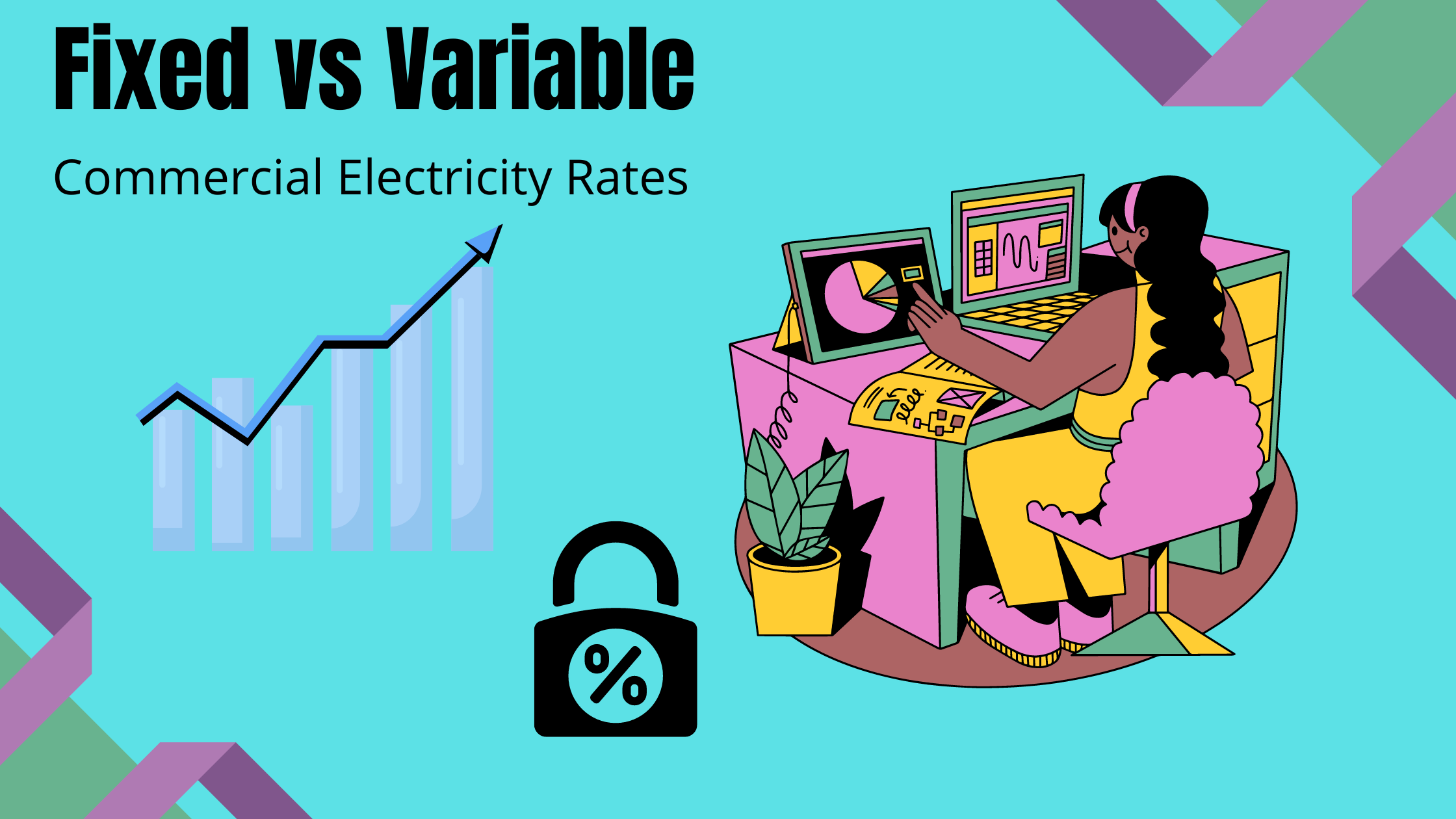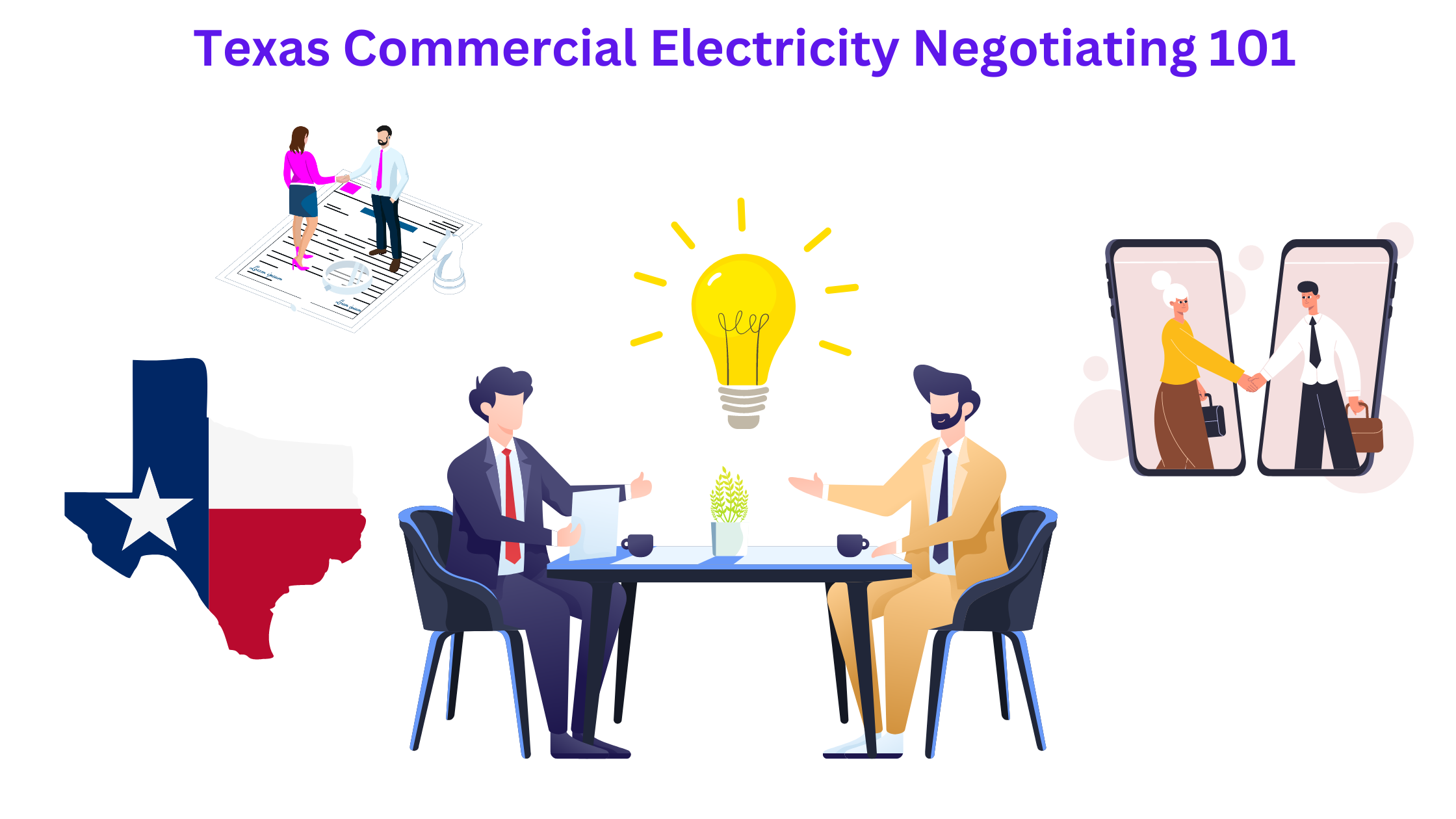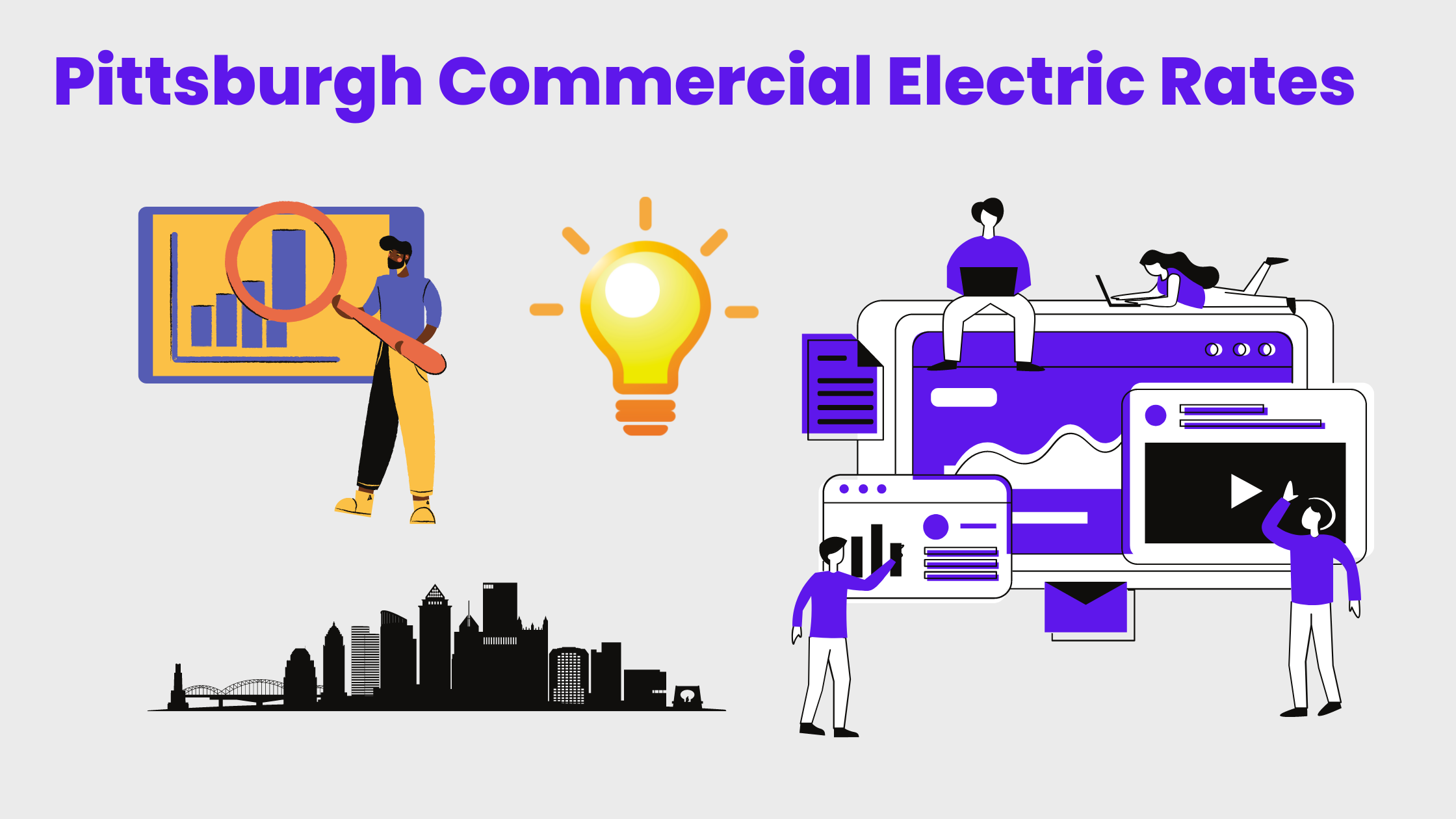
Are Fixed or Variable Electricity Rates Better for My Business?
Table of Contents
Introduction
As a seasoned executive electricity broker, I’ve spent years navigating the intricate landscape of electricity supply contracts and negotiating favorable terms with retail electricity suppliers on behalf of my clients. One of the most common questions I encounter is, “Are fixed or variable rates better for my business?” It’s a valid concern – after all, choosing the right rate structure can significantly impact your bottom line. In this comprehensive guide, we’ll delve into the world of fixed and variable rates, exploring the pros, cons, and real-world scenarios to help you make an informed decision tailored to your business’s needs.
Understanding Fixed Rates: Stability and Predictability
Fixed electricity rates are like a steady ship in the stormy seas of energy prices. When you opt for a fixed rate plan, you lock in a set rate per kilowatt-hour (kWh) for the duration of your contract. This means that regardless of market fluctuations, your rate remains constant. For businesses that value budget predictability and stability, fixed rates can be a lifeline.
The Pros of Fixed Rates
Predictable Budgeting
Imagine your electricity expenses being a known entity on your balance sheet, making financial planning a breeze. With fixed rates, you know exactly what to expect each month, helping you allocate resources more efficiently.
Market Protection
In times of rising energy costs, your fixed rate shields you from sudden spikes. This is especially valuable for businesses with slim profit margins.
Long-Term Planning
If you’re looking at the big picture and aiming for long-term stability, fixed rates offer the peace of mind to focus on strategic growth rather than energy market volatility. After receiving multiple bids and securing your low business electricity rate, you will be able to better focus on your business knowing that a major operating expense has been taken care of.
The Cons of Fixed Rates
Missed Savings Opportunities
The flip side of predictability is the possibility of missing out on potential savings when market prices dip. If the market experiences a sustained drop in prices, you won’t benefit from these lower electric rates with a fixed contract.
Market Upside
If energy prices remain consistently lower than your fixed rate, you won’t capitalize on these market-driven savings. This can lead to a sense of missed opportunities, especially when your competitors are enjoying lower costs.
Embracing Variable Rates: Riding the Market Waves
Variable electricity rates are akin to riding the stock market – they can bring highs and lows, but they offer the potential for substantial rewards. With a variable rate plan, your rate fluctuates based on market conditions. This means you’ll benefit from lower prices during periods of market decline, but you’ll also experience the pinch when prices rise.
The Pros of Variable Rates
Market Savings
When the energy market is down, you’re in the driver’s seat. Variable rates allow you to capitalize on lower energy costs, potentially leading to significant savings.
Flexible Contracts
Variable rate plans often come with shorter contract terms, giving you the freedom to reassess your options and potentially switch to a more favorable plan when market conditions change.
Market Awareness
By opting for variable rates, you’ll stay more attuned to energy market trends, enabling you to make informed decisions based on real-time information.
The Cons of Variable Rates
Budget Uncertainty
While variable rates offer the potential for savings, they also introduce budget uncertainty. Your monthly expenses will vary based on market conditions, which might not align with your financial planning.
Market Volatility
The energy market can be unpredictable. Sudden price spikes can lead to months of higher-than-expected bills, putting a strain on your cash flow.
Fixed or Variable?
Real-World Scenarios: Finding the Right Fit
Imagine two businesses: a cozy café and a bustling manufacturing facility. The café values stability and wants to ensure consistent monthly expenses to match its steady income. For them, a fixed rate plan offers the financial predictability they need to thrive.
On the other hand, the manufacturing facility operates heavy machinery and consumes significant amounts of energy. They have the flexibility to scale operations based on market conditions and can take advantage of lower variable rates during periods of reduced demand.
Blended Solution: Combining Fixed and Variable Pricing
Energy choice markets has created an abundance of new product offerings for customers, and especially business customers. Competitive electricity providers can tailor specific product offerings and supply contracts for certain business customers that combine fixed and variable rate pricing so that the customer receives the best of both worlds.
Texas, which has one of the most mature electricity choice markets in the world, offers customers a large array of such blended product offerings. Providers are always coming up with new Texas commercial electricity rate contract structures to entice businesses into becoming new clients.
For example, a business who uses a significant amount of power at night can ride the wholesale variable rates at night when these prices tend to drop, while locking in their day time usage to a fixed price. In this way, they are protecting themselves from long term volatility by fixing half of their electricity consumption, while also taking advantage of lower night time pricing.
Companies that might benefit form this type of electricity price structure are factories that run 24/7 or large freezer storage facilities who use just amount of power at 4am as they do at 4pm.
Conclusion: Your Unique Needs Matter
Ultimately, the question of whether fixed or variable rates are better for your business hinges on your unique needs, risk tolerance, and energy consumption patterns. As your trusted executive electricity broker, my role is to analyze your business’s specifics, market trends, and rate structures to provide personalized guidance.
Remember, there’s no one-size-fits-all answer. The energy market is dynamic, and what suits one business might not be ideal for another. By understanding the pros, cons, and real-world scenarios of fixed and variable rates, you’re equipped to make an informed decision that aligns with your business’s goals and aspirations. Feel free to reach out – I’m here to guide you every step of the way.





